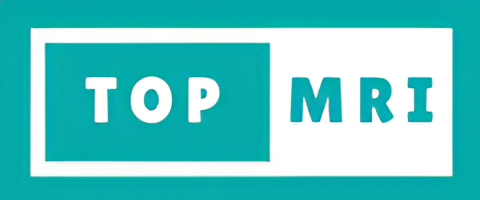
- Home
- Services
- Locations
- MRI Scan
- Greater London Area
- London – Marylebone, W1G 7HE – 3.0 T MRI Scan – £300
- London – Harley Street, W1U 2HX – Open MRI Scan – £500
- Middlesex – Enfield, EN2 8JL – 1.5 T MRI Scan – £300
- West Middlesex – Isleworth, TW7 6AF – 1.5 T MRI Scan – £300
- Surrey – Epsom, KT18 7LX – 1.5 T MRI Scan – £300
- Surrey – Ashford, TW13 3AA – 1.5 T MRI Scan – £300
- Surrey – Guildford, GU2 7XU – 3.0 T MRI Scan – £300
- Kent – Sidcup, Bexley, DA14 6LT – 1.5 T MRI Scan – £300
- North West England
- Manchester – M80 4AN – Open MRI Scan – £500
- Greater Manchester – Manchester, SK8 7NB – 1.5 T MRI Scan – £279
- Greater Manchester – Whythenshaw, M23 9LT – 3.0 T MRI Scan – £300
- Greater Manchester – Stockport, SK2 7JE – 1.5 T MRI Scan – £300
- Cumbria – Cockermouth, CA13 9HT – 1.5 T MRI Scan – £279
- Cumbria – Penrith, CA11 0AH – 1.5 T MRI Scan – £279
- Lancashire – Preston, PR4 0AP – 1.5 T MRI Scan – £279
- Lancashire – Fylde, FY8 1PF – 1.5 T MRI – £300
- North East England
- East Midlands
- East of England
- West Midlands
- South West England
- South East England
- Wales
- Yorkshire and the Humber
- Greater London Area
- CT Scan
- Full Body MRI Scan
- Ultrasound
- MRI Scan
- Patients
- Referrers
- Prices
- 0333 344 1811
info@topmri.com
Chronic Myeloid Leukaemia (CML)
- Uncategorized
-
Sep 17
- Share post
Chronic Myeloid Leukaemia (CML): Symptoms, Causes, Diagnosis, Treatment, and Future Outlook.
Disclaimer:
This blog is for informational purposes only and should not be taken as medical advice. Content is sourced from third parties, and we do not guarantee accuracy or accept any liability for its use. Always consult a qualified healthcare professional for medical guidance.
What is Chronic Myeloid Leukaemia (CML)?
Chronic Myeloid Leukaemia (CML) is a slow-growing blood cancer caused by the Philadelphia chromosome t(9;22), creating BCR-ABL fusion gene leading to uncontrolled myeloid cell production. Phases include chronic (80-90% diagnosed here), accelerated, and blast crisis (acute leukaemia-like). In 2025, ~9,000 US cases annually, median age 64, more in men.
Symptoms
Chronic phase is often asymptomatic or mild: fatigue, weight loss, night sweats, abdominal fullness (splenomegaly), easy bruising, fever. Accelerated/blast phases cause severe symptoms like bleeding, infections, bone pain, and anemia. Symptoms progress over years if untreated.
Causes
The BCR-ABL translocation is the hallmark, with no clear cause but risk from high-dose radiation. Age, male gender, and obesity increase risk. In 2025, research shows microenvironment and additional mutations drive progression.
Diagnosis
Diagnosis uses CBC showing high white cells (basophils, eosinophils), peripheral smear with myelocytes, and bone marrow biopsy. FISH/PCR confirms BCR-ABL. Cytogenetics assesses Philadelphia chromosome. In 2025, NGS detects resistance mutations.
Treatment
Tyrosine kinase inhibitors (TKIs: imatinib, dasatinib, nilotinib, bosutinib, ponatinib) are first-line, achieving 90% 10-year survival. SCT for resistant cases. In 2025, asciminib (ABL myristoyl pocket inhibitor) treats resistant CML.
Future Outlook
In 2025, 10-year survival is 90% with TKIs, with many achieving treatment-free remission. Research on TKI discontinuation and novel inhibitors could make CML curable by 2030, with 95% survival.
Sources
The information for CML is drawn from Wiley’s “Chronic myeloid leukemia: 2025 update on diagnosis, therapy, and monitoring” for 2025 updates; Cleveland Clinic’s “Chronic Myeloid Leukemia (CML): Symptoms, Treatment & Prognosis” for symptoms and treatment; PubMed’s “Chronic myeloid leukemia: 2025 update” for diagnosis; MD Anderson’s “Chronic Myeloid Leukemia (CML)” for overview; Cancer Research UK’s “Daily life, support and chronic myeloid leukaemia (CML)” for living with CML; Nature’s “2025 European LeukemiaNet recommendations” for guidelines; Cincinnati Children’s “Chronic Myeloid Leukemia | Symptoms, Diagnosis & Treatment” for pediatric insights; Healthline’s “Everything You Want to Know About Chronic Myeloid Leukemia” for outlook; Stanford Health Care’s “Chronic Myeloid Leukemia (CML)” for care; Everyday Health’s “Understanding Chronic Myeloid Leukemia: Causes, Symptoms, and Treatment” for causes.